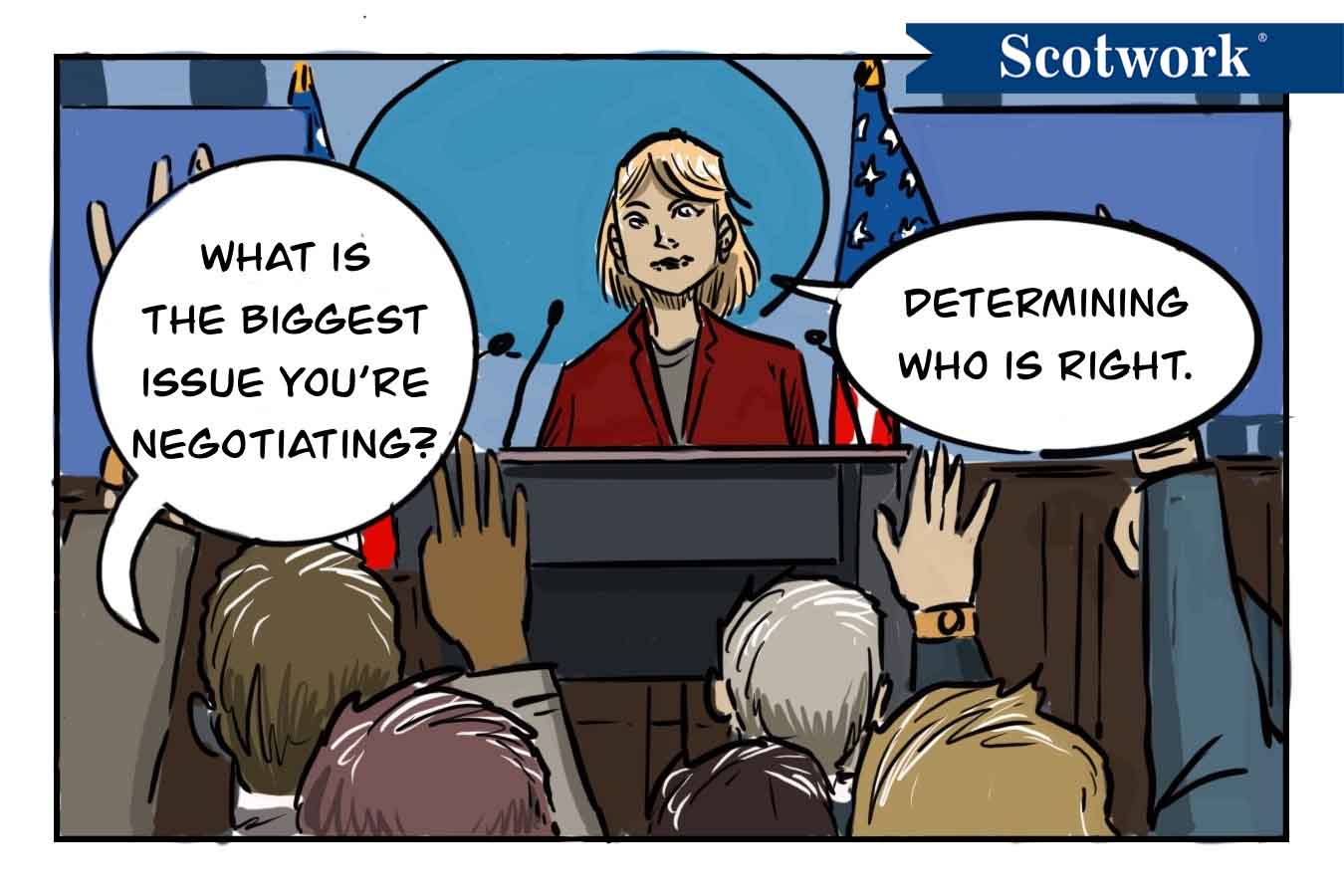The US government is still shut down: two sides, both convinced they’re right, both unwilling to back down, both painfully aware that losing ground publicly could cost them political capital. So, they dig in. The longer it drags on, the more “saving face” becomes the obstacle to making progress.
While most of us don’t negotiate on Capitol Hill, we’ve all experienced our own version of this stalemate. Whether it’s a client conversation, a budget debate, or a team disagreement, the instinct to protect our image can derail an otherwise productive negotiation.
Saving face is a deeply human instinct. It’s our desire to preserve our dignity, protect our reputation, and avoid embarrassment or perceived weakness. But in a negotiation, that instinct can easily lead us astray.
I’ve seen negotiators refuse smart deals simply because they didn’t want to appear like they’d “lost.” I’ve seen others double down on bad positions because they’d argued for them publicly. In those moments, the focus shifts from reaching the best outcome to protecting one’s image.
If you find yourself doing that, it’s a sign that your ego is in the driver’s seat. The fix? Step back and ask, “If no one else were watching, what would I do right now?”
Negotiations should be about creating mutually acceptable agreements, not ego-stroking or one-sided victories. Losing face doesn’t necessarily mean losing dignity; it can mean prioritizing purpose over pride.
Of course, it’s not always our face that needs saving. Sometimes, it’s the other side’s. And that’s where skilled negotiators can become legendary.
In The Art of War, Sun Tzu advised, “Build your opponent a golden bridge to retreat across.” In other words, make it easy for them to say “yes,” even if that means they can do so without admitting defeat.
In practice, that might look like:
- Framing your proposal so the other party can take credit for the solution.
- Offering face-saving language like, “We’ve both evolved our positions,” instead of “You finally came around!”
- Avoiding public humiliation; instead, let them adjust privately, then announce the shift on their own terms.
These moves might feel small, but they’re powerful. They reduce resistance, preserve relationships, and move negotiations forward when pride would otherwise block the path.
When we allow others to save face, we create space for agreement. When we refuse, we build walls of resentment.
In my experience, negotiators who get the best results and have the strongest relationships make it easy for others to say “yes” even if that means quietly handing the other party an exit ramp without requiring them to admit they were wrong.
So, if you’re ever at an impasse with the other side, consider this:
- Where in your own negotiations might “saving face” — yours or theirs — be getting in the way?
- What golden bridge could you build to get things moving again?
When pride takes the lead, progress stops. In a negotiation, winning shouldn’t be about who looked best, but who built the bridge that everyone could walk across.
While I watch the current political standoff unfold, I’m betting that the shutdown will not end ’til they figure out how both sides can walk away with a victory. Unfortunately, that might take a while.
Negotiation Training and Consulting to Help You Build “Golden Bridges.”
In a negotiation, winning shouldn’t be about who looked best, but who built the bridge that everyone could walk across. Rely on Scotwork’s 50 years of expertise to help you build a bridge to better deals and stronger relationships.

